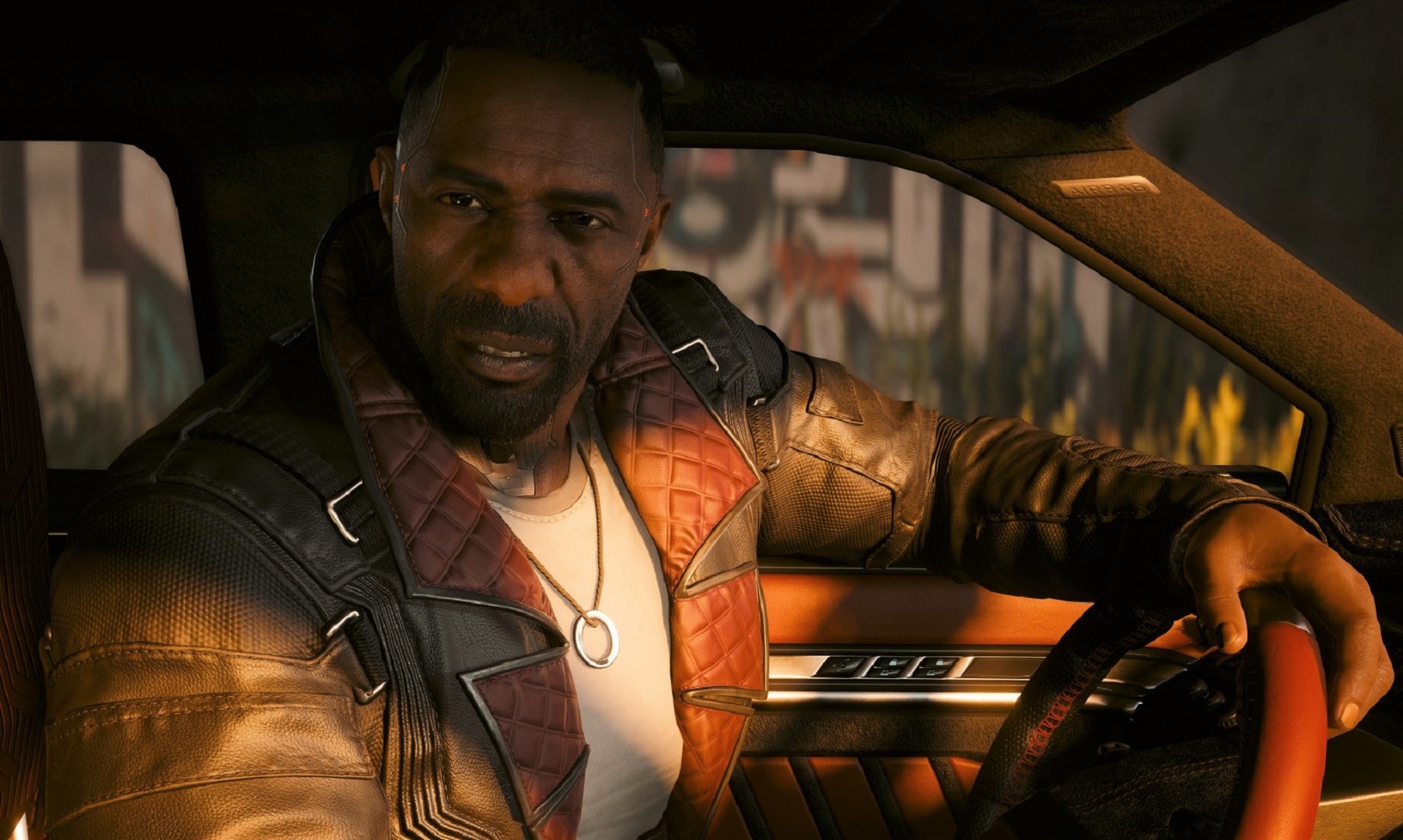Our Verdict
Phantom Liberty doesn't reinvent Cyberpunk 2077, but it is CD Projekt firing on all cylinders to tell a great RPG story.
PC Gamer's got your back
Given Phantom Liberty's superspy theme, I expected, nay, demanded a good high-society shindig infiltration level, and Cyberpunk 2077's first and only expansion pack delivered.
The centerpiece of the soiree mission was a long, tense dialogue puzzle where I had to earn the trust of a pair of deliciously awful French twins while playing high stakes roulette. I had to engage, provoke, and eventually befriend the international con artists all while I watched my FIA (Cyberpunk future CIA)-provided funds dwindle away. Shoulda bet on black. At the last minute I chose a particularly inflammatory and insulting dialogue option and my handler pre-emptively chewed me out over the radio, but the little freaks absolutely ate it up. Maybe I am cut out for this superspy stuff.
Phantom Liberty is an extra-refined bite of Cyberpunk 2077—an expansion pack's expansion pack. It doesn't reinvent the game as a whole, but it's a fantastic final outing for V and Night City, as well as one of the best individual stories CD Projekt Red has told to date. Meanwhile, Cyberpunk 2077's 2.0 update, free to all players, has reforged the original looter shooter gear deluge and "+5% poison resistance"-style perks system, giving us a more solid RPG whose under-the-hood systems better compliment its shooting, slashing, and stealthing.
After a legendarily fraught launch and three years of rebuilding, Cyberpunk 2077 is finally the RPG its world and characters deserved, and Phantom Liberty is a fine last hurrah for a game that's taken CD Projekt so long to hone.
Fake Plissken
It took me a second to come around to Phantom Liberty's set-up: rescue the president of the New United States after Space Force One (lol) gets shot down over Dogtown, a newly added district of Night City that looks like the Thunderdome by way of Blade Runner: 2049's haunting, irradiated Las Vegas.
CD Projekt is great at teeing up a story that seems like it'd be derivative or Spike TV-edgy, then absolutely curving you with unexpected depth and nuance, and that's no different here. President Myers comes off as a down to earth, "one of the guys" former soldier, like Harrison Ford from Air Force One, but there's a serpentlike ambition to her that comes out as the story goes on.
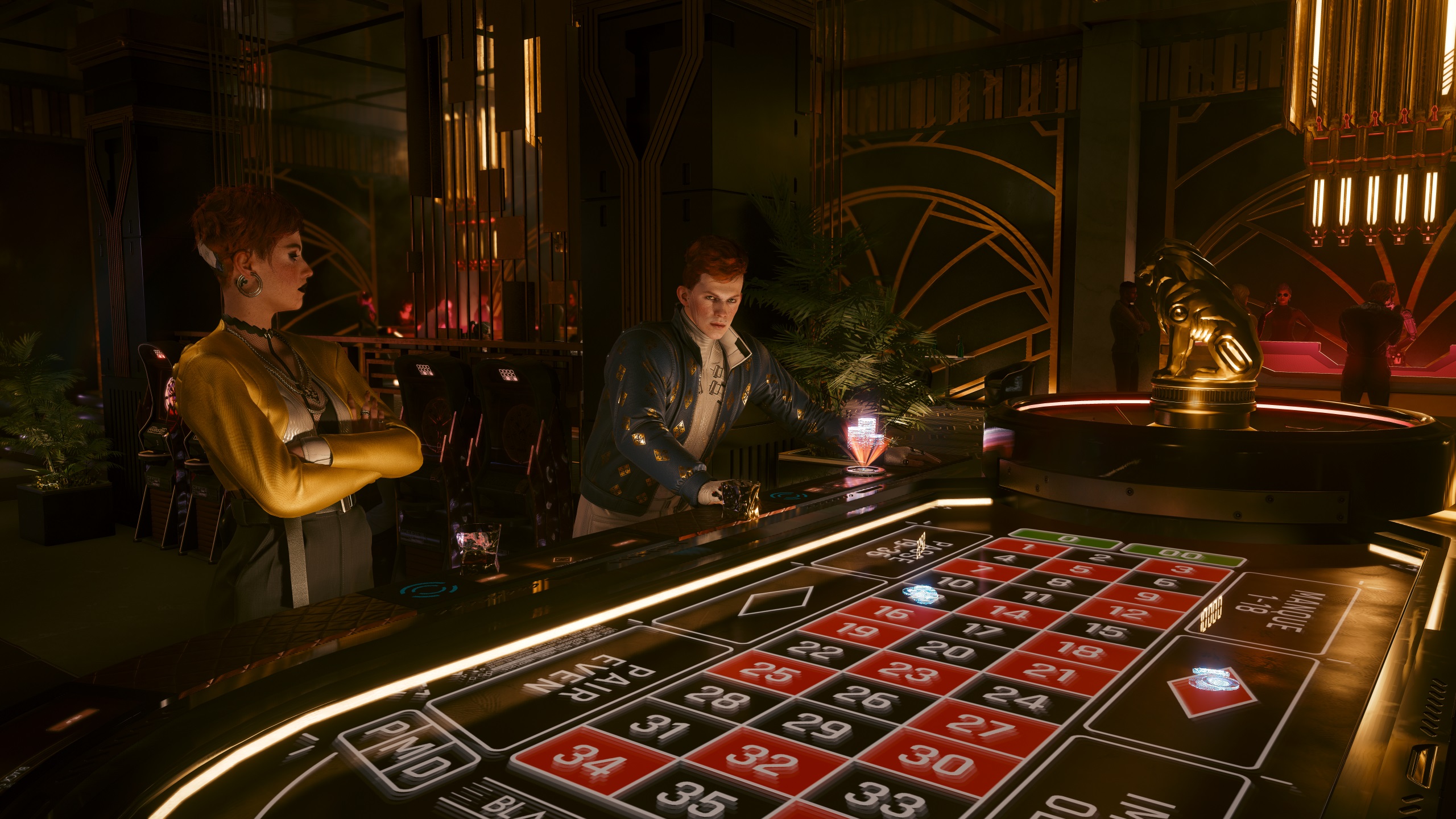
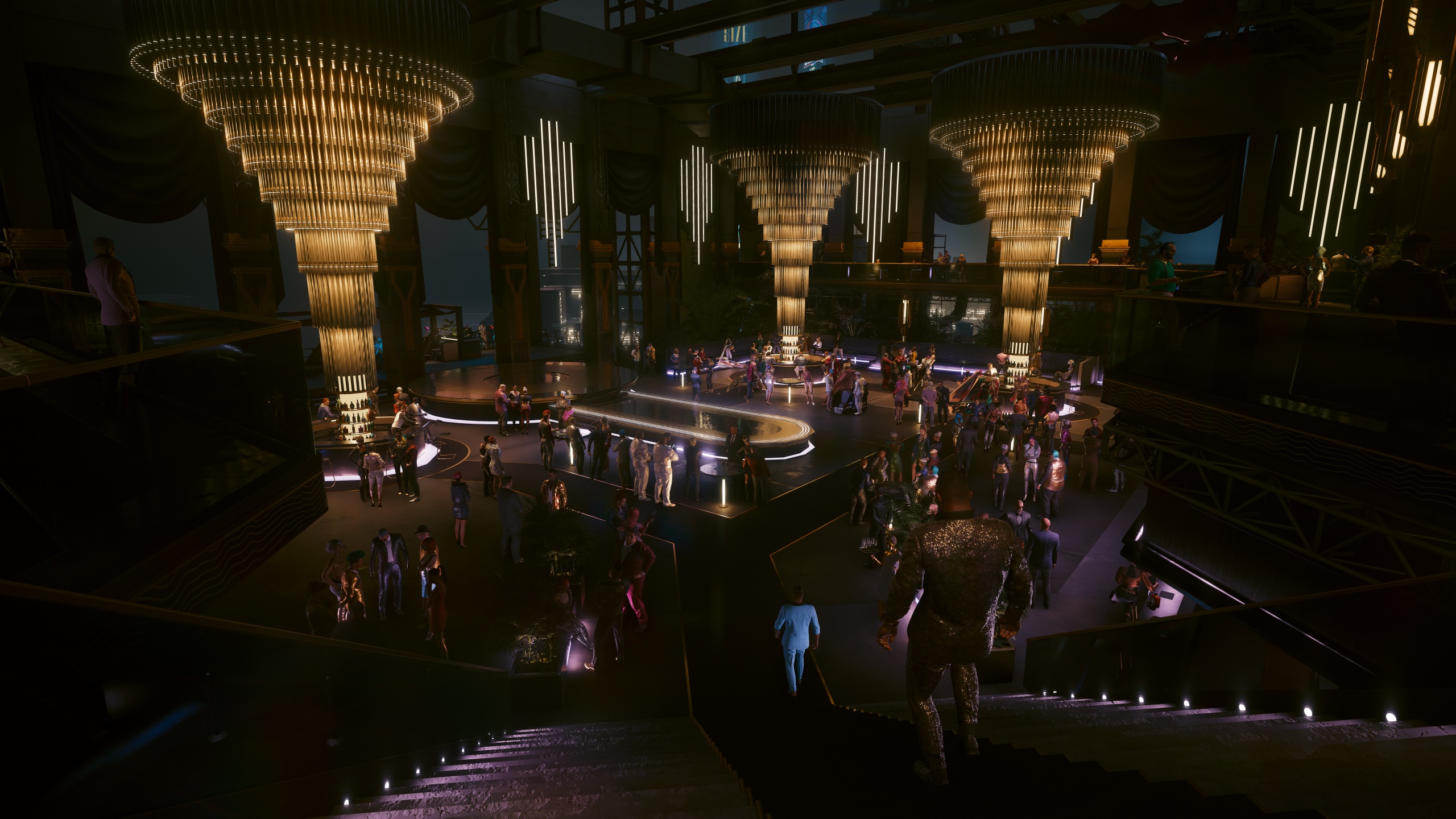
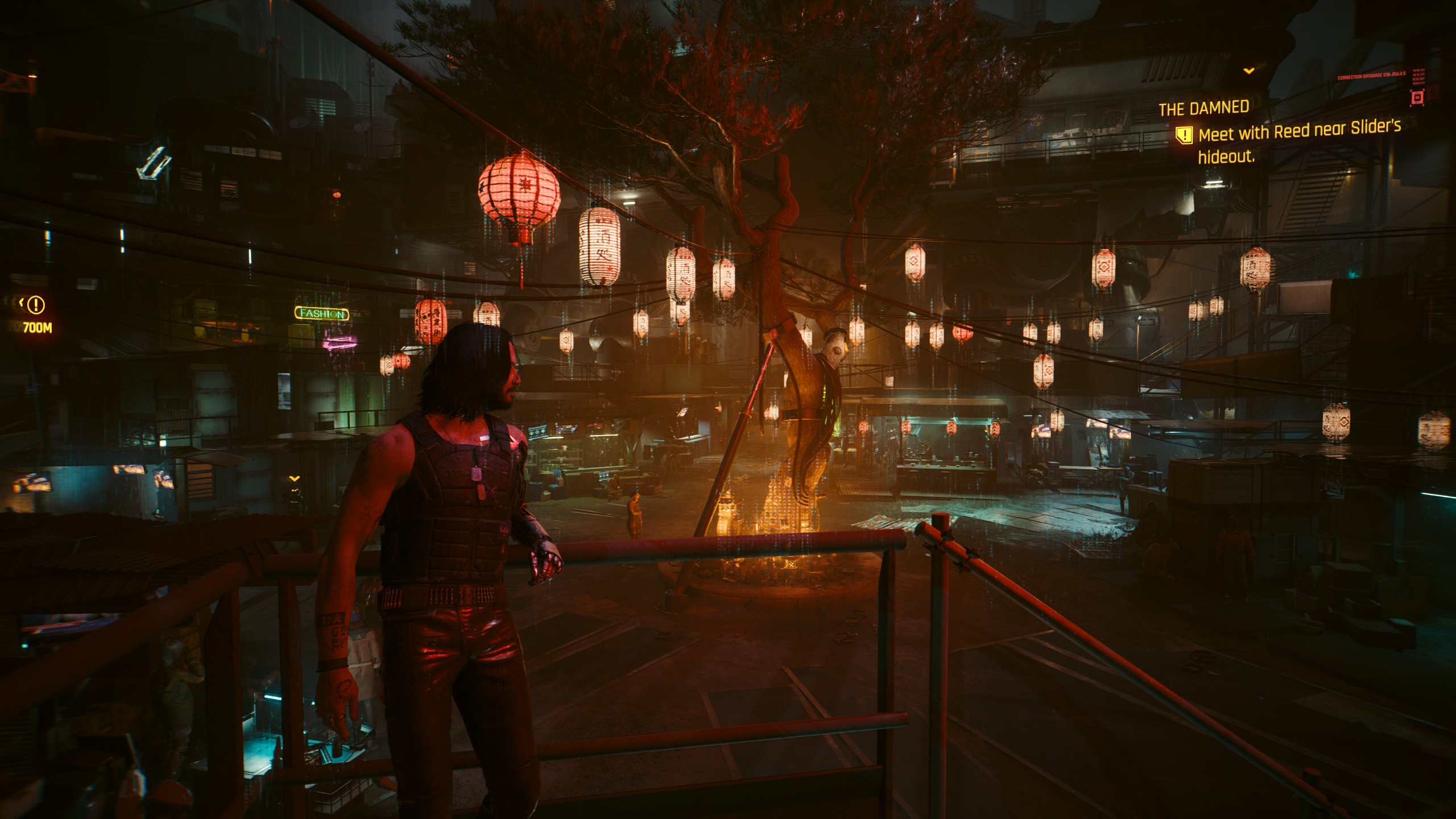
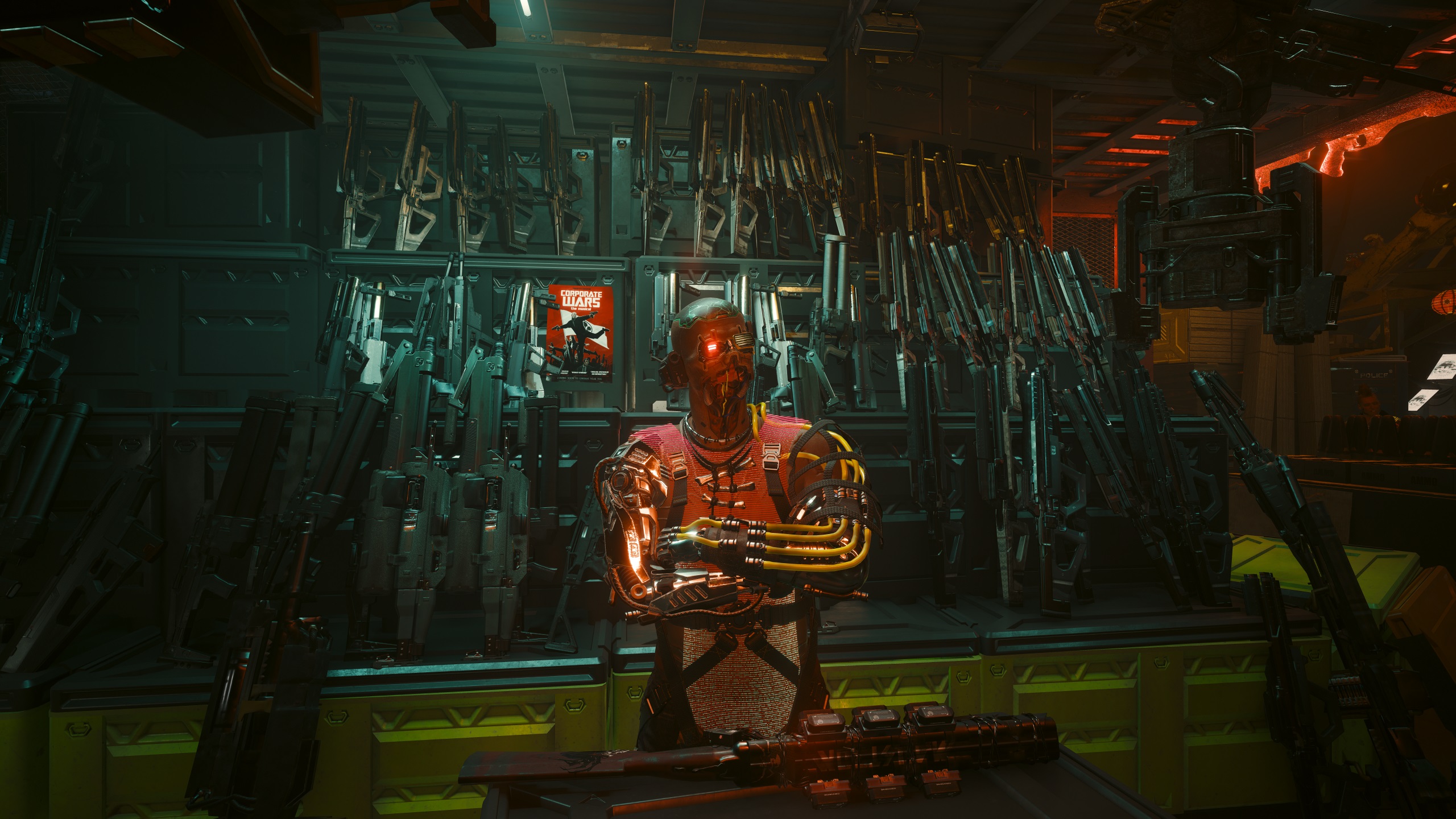
Idris Elba is a real treat as Solomon Reed, a reluctant killer roused from deep cover to "serve his country" even though he hates Myers' guts and was burned by his own agency years ago. They've both got priors with Songbird, a brittle, emotionally compromised hacker with the strange ability to jack into your Keeanu Reeves-inhabited brain relic who also claims to have a cure for that bad boy brain rot. Reeves' Johnny Silverhand is back for the ride too, and while he seems to be a bit of an acquired taste (former PCG editor James Davenport dubbed him "John Prick"), he makes for a great asshole Greek chorus in Phantom Liberty.
CD Projekt makes a case here for more cinematic, bounded RPG design.
The main players in Phantom Liberty all think they're doing the right thing and that they don't have any other options, all while expecting you to back them up, and that eventually shakes out into one of the toughest choices I've had to make in an RPG: you have to betray someone, and both ending paths feature their own triumphs and gut punches.
The path I chose was way more gut punches than triumphs, so I think I picked the "bad" ending. From chatting with my coworkers, though, the other option sounds at least bittersweet, and my RPG perfectionist drive to get the best ending possible is conflicting with just how good that bad ending was. The Darkest Timeline had me feeling like my stomach had a lead weight in it from the point of no return to credits rolling, and by the end, the bastards got away with everything. Forget it V, it's Dogtown.
Phantom Liberty's main quests are a series of real dingers—I was wondering how it would stack up post-Baldur's Gate 3, but CD Projekt makes a case here for more cinematic, bounded RPG design. Set pieces like that roulette table or the tense lead-up to the point of no return just popped for me. CD Projekt really is in the same league as Naughty Dog or Sony Santa Monica when it comes to delivering draw-dropping moments, but sets itself apart with the RPG choice, consequence, and interactivity I crave.
Gig economy
I always enjoyed Cyberpunk's smaller side quests or "gigs," too. Many are simple but enjoyable "go here and kill everyone as fits your playstyle" deals, but some of them felt more like full-on side stories with voice acting, a twist, and maybe even a gameplay curveball.
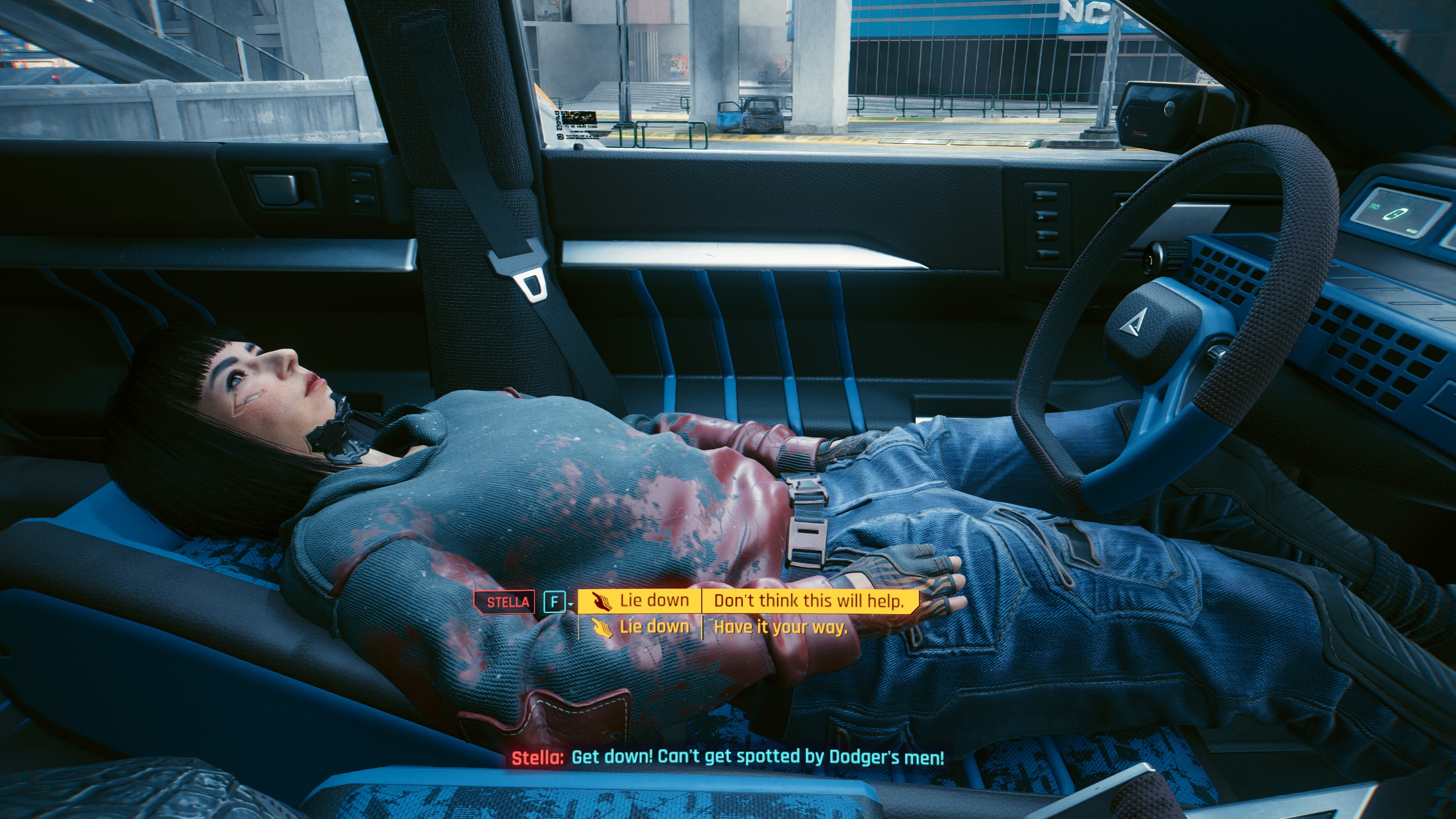
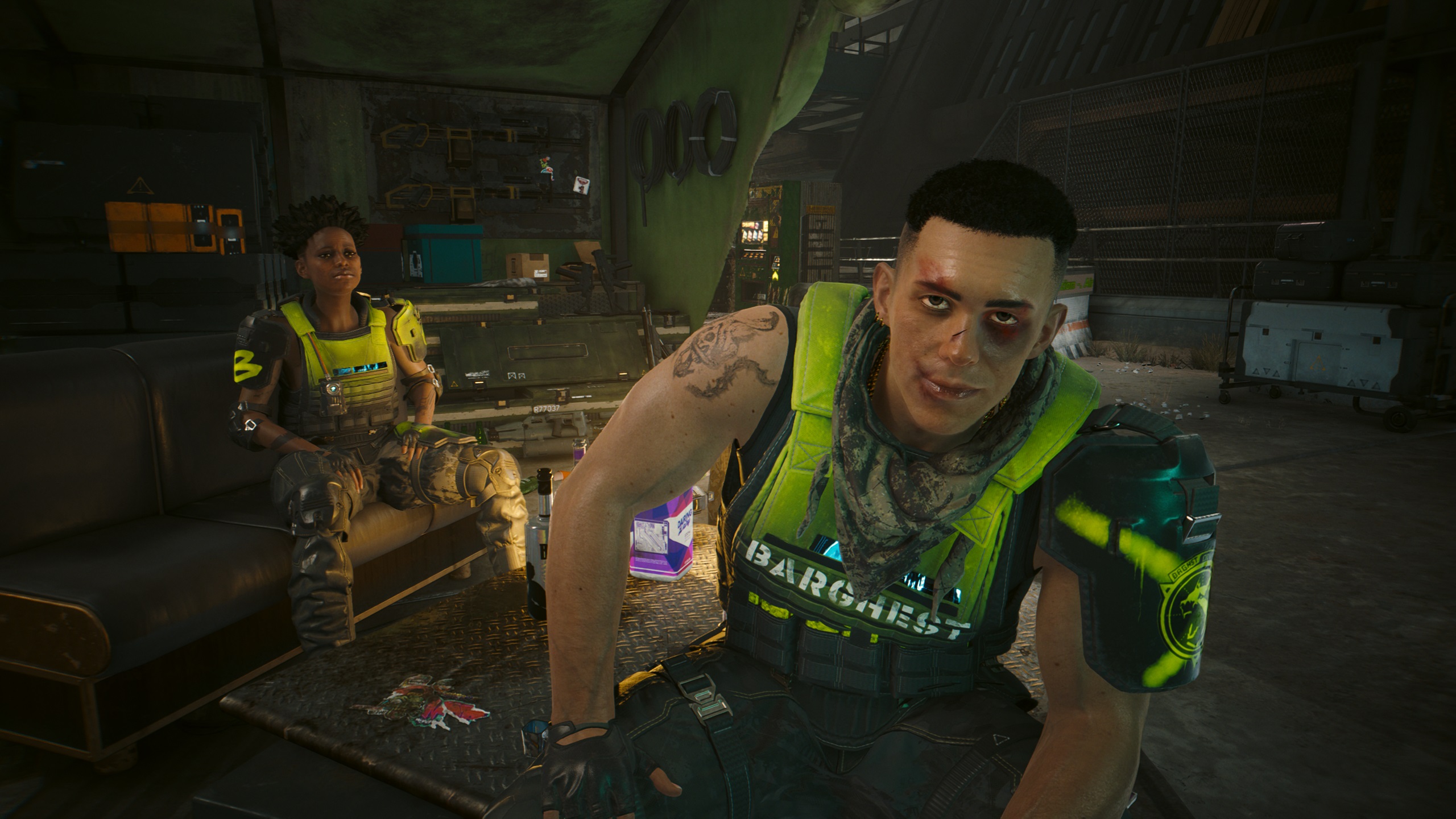
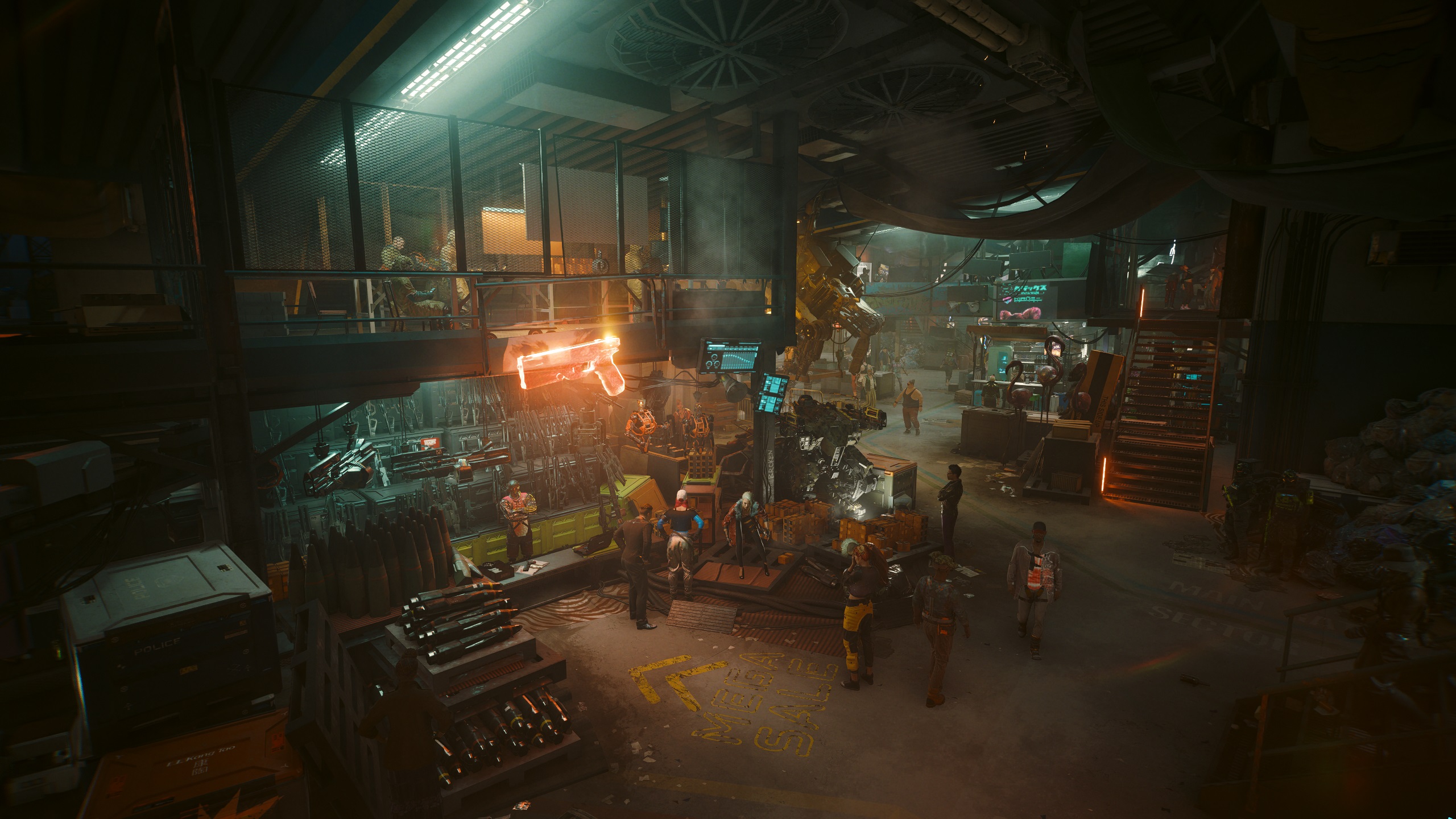
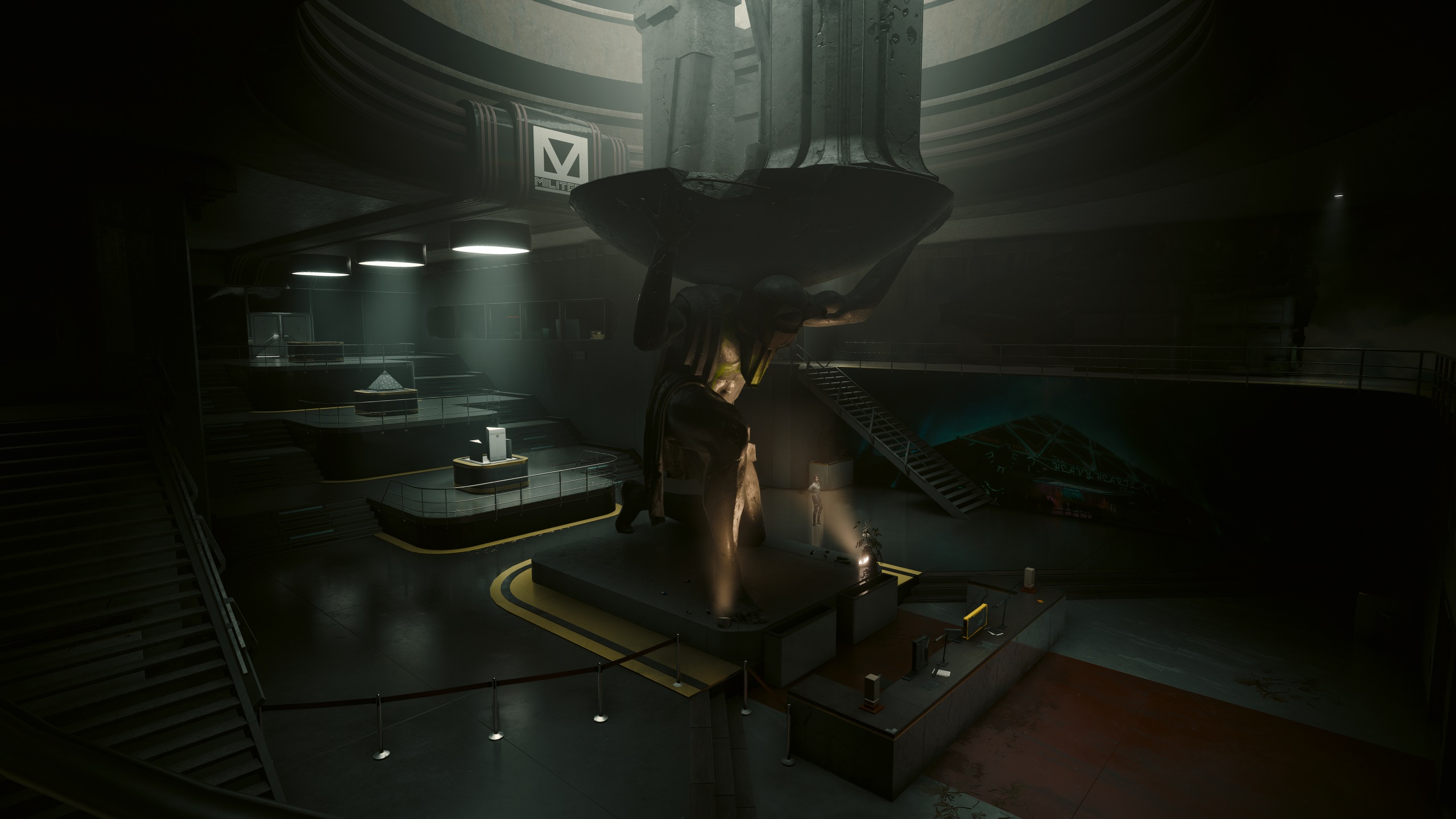
Phantom Liberty's gig additions firmly fall into the latter camp, and I loved each one. A rescue operation for an underworld doctor gets complicated by his history of unsavory practices in one gig, while another sees you infiltrating the youth sports academy of the future, specializing in cybernetically enhanced 12-year-olds.
My favorite tasked me with helping out a pair of hapless chucklefuck detectives caught with their proverbial pants down in Dogtown and panicking for their lives. I felt like Harvey Keitel swooping in to save the day as the Wolf in Pulp Fiction, and the entire thing had this slapstick absurdity from beginning to end that I adored.
Doggone it
It makes sense that Dogtown's physically siloed off from the rest of Night City, but I found myself wishing it was either better-integrated into the main game, or even more of a hostile, alien, alternate zone. The "save the President" plot actually resolves itself pretty quickly in favor of a deeper conspiracy, and you're subsequently free to come and go between Dogtown and Pacifica as you please, but the DLC really doesn't have you doing much in Night City proper aside from running quick errands like delivering procedurally spawned cars for its new, literal grand theft auto minigame.
Night City just isn't tactile or inviting the way a good immersive sim or even the Elder Scrolls games manage to be.
Cyberpunk's base game has a stellar cast, and while this is a separate story, it feels weird to have the game's effective send-off have such little interplay with characters like Judy, Rogue, Kerry, or even Takemura. The lack of involvement for the game's four romanceable characters felt particularly odd to me. I had the chance to tell my base game beau that I was on a crazy new job for the Cyberpunk Intelligence Agency, but it basically felt like I was telling her "I'm gonna be in the expansion pack for a while babe, don't wait up."
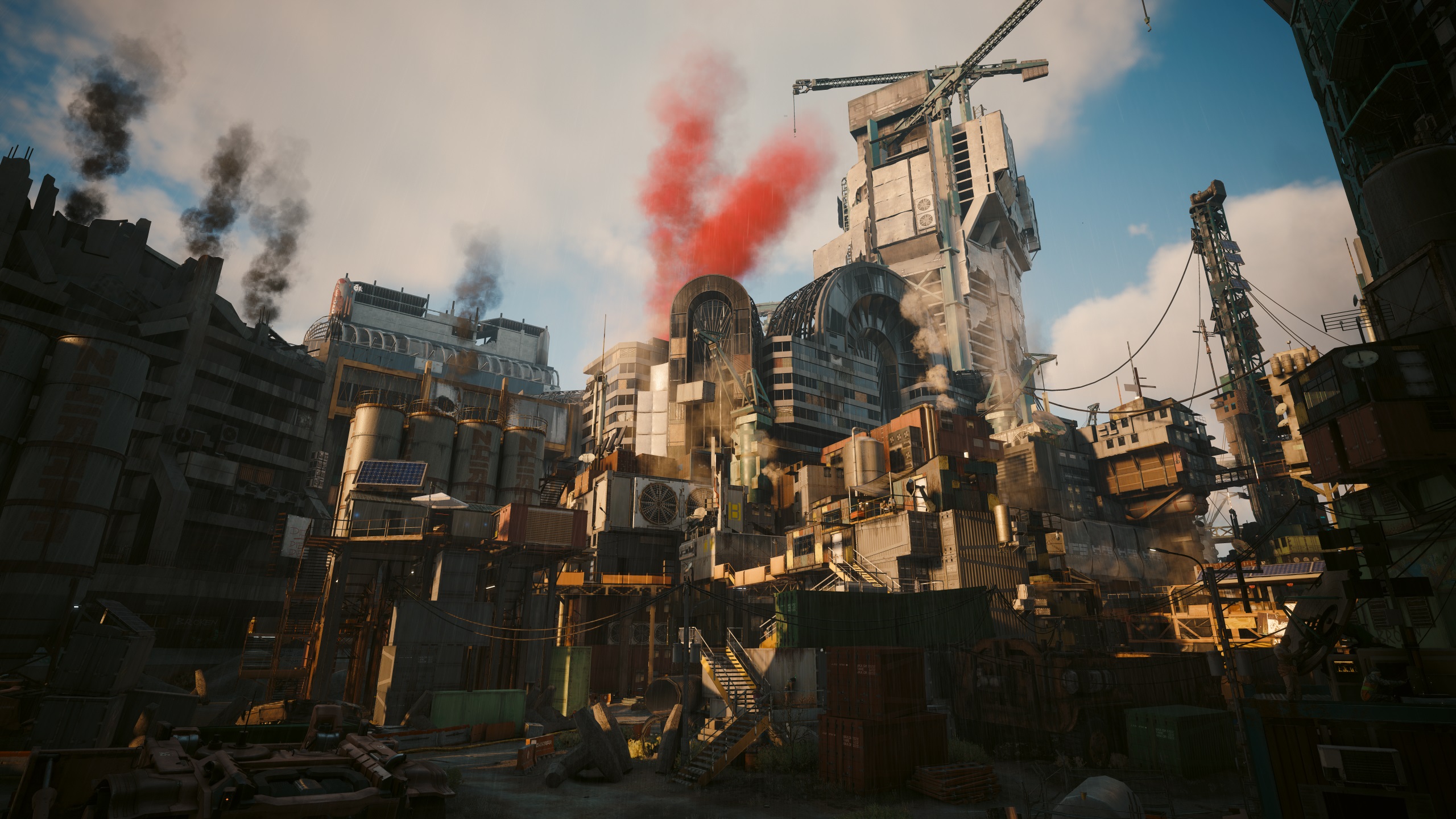
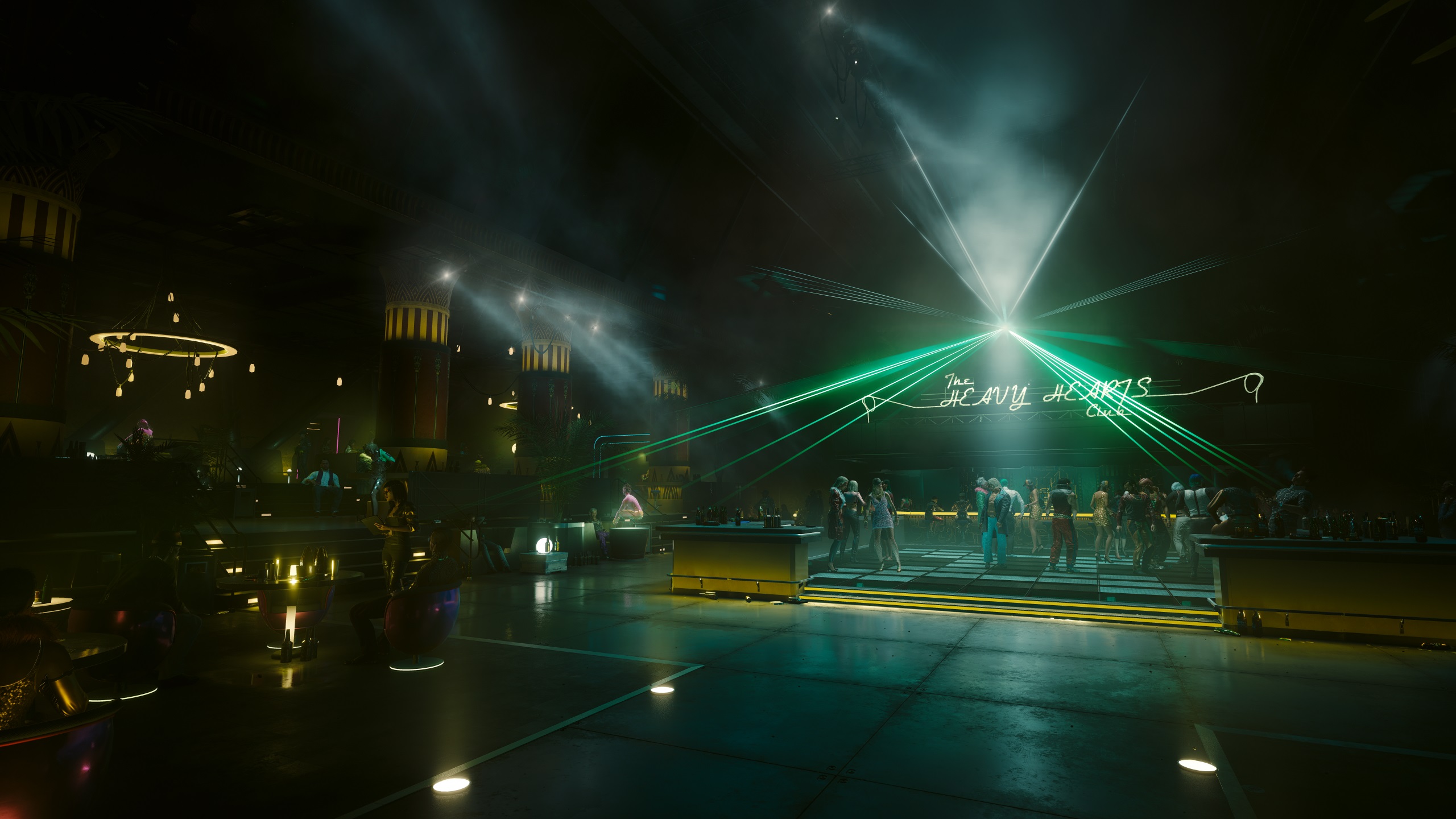
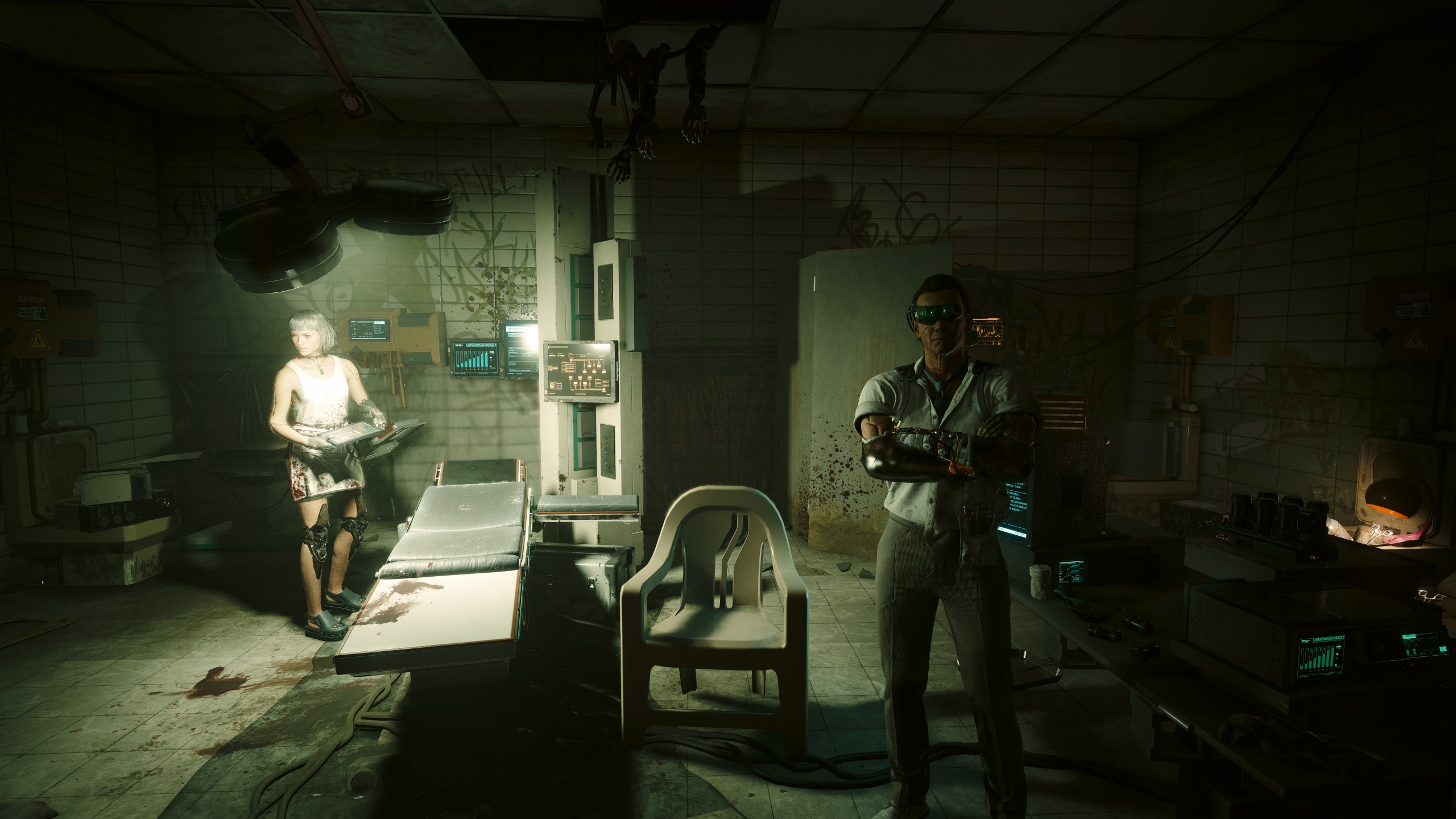
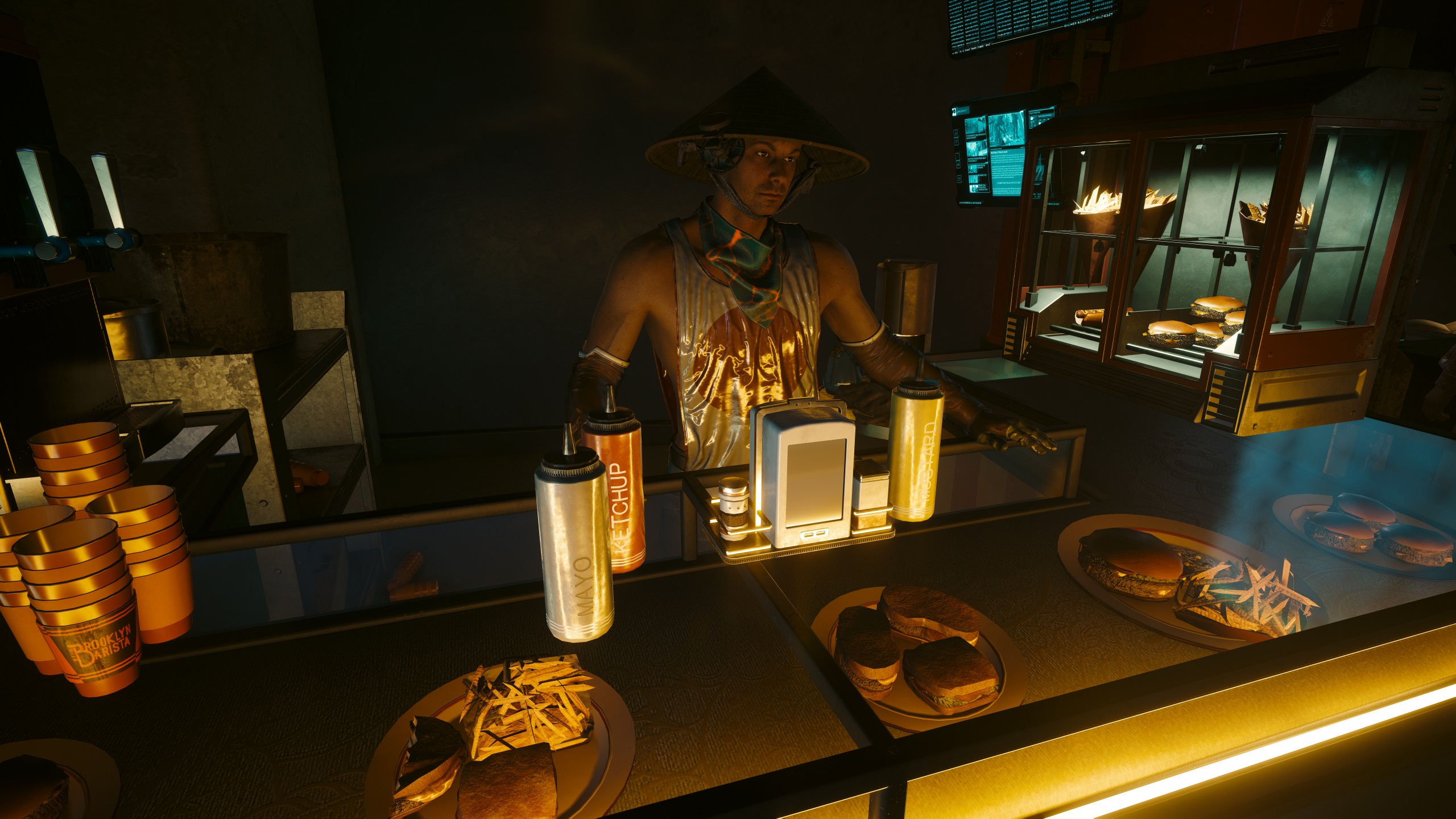
While Dogtown has a really cool, distinct look from the rest of Night City, it's still rocking the same basic design, and I found that a little disappointing. With the promise of a denser, smaller sandbox to play around in, I was hoping CD Projekt might flex its muscles making something closer to a Deus Ex hub.
Now that 2.0 has fixed Cyberpunk's loot and progression woes, its biggest remaining issue to my eye is that there's no real call to explore or poke around its world outside explicit mission objectives. Night City just isn't tactile or inviting the way a good immersive sim or even the Elder Scrolls games manage to be—no breaking into people's apartments and reading their diaries, you can only snoop in gig/mission-sanctioned areas. I think Dogtown's smaller, more manageable canvas could have been an opportunity to create something like that within Cyberpunk 2077. The visual feast of Night City has always clashed with how uninteractive its world is.
Still, I'm extremely pleased with Phantom Liberty—CD Projekt can hang with the big dogs when it comes to cinematic storytelling, with a quality of writing and world building that I prefer to the likes of Sony's vaunted first party lineup. I've been eager to see what CD Projekt would do with a Cyberpunk 2077 expansion ever since first beating the game at the end of 2020, and Phantom Liberty is a splendid sendoff for the world CD Projekt's been working on for the better part of the last 10 years.
Phantom Liberty doesn't reinvent Cyberpunk 2077, but it is CD Projekt firing on all cylinders to tell a great RPG story.
Ted has been thinking about PC games and bothering anyone who would listen with his thoughts on them ever since he booted up his sister's copy of Neverwinter Nights on the family computer. He is obsessed with all things CRPG and CRPG-adjacent, but has also covered esports, modding, and rare game collecting. When he's not playing or writing about games, you can find Ted lifting weights on his back porch.
